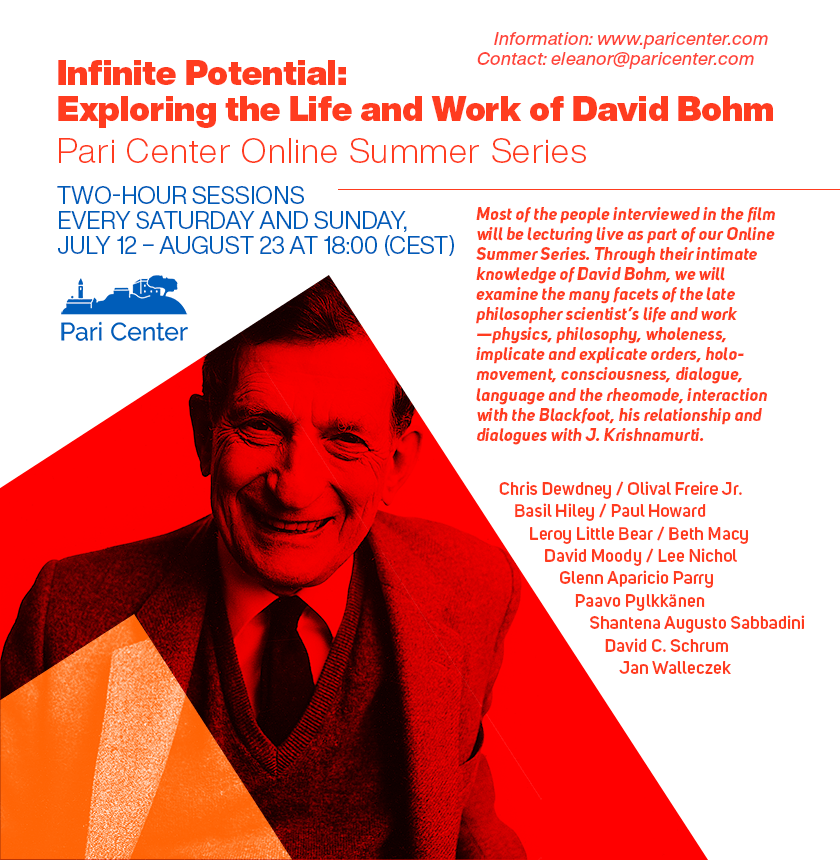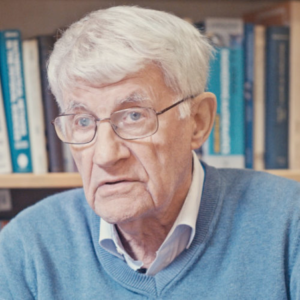Your cart is currently empty!

How does the Classical World Emerge from the Implicate Order?
- This event has passed.
July 25, 2020 @ 6:00 pm – 8:00 pm CEST

Buy the recording
How does the Classical World Emerge from the Implicate Order?
with Basil Hiley
July 25 at 18:00 (CEST) for a 2-hour live session
Experimental evidence clearly shows classical physics is wrong. Sure, it works at the classical level, but there is some deeper order necessary to understand the new physics. Nevertheless this deeper process must approximate to the macroscopic world we experience. David Bohm suggested that the algebraic quantum formalism should be understood in terms of the implicate order. For him this was the order that we directly perceive and from our experiences we abstract an array classical orders, the explicate orders from which we construct the an order which allows us to find a way to survive. The deeper implicate order contains an array of what appears to be contradictory possible explicate orders. Why? We find classical rigidity is replaced by a new notion of dynamical rigid forms which gives rise to what is known as quantum non-locality. I will try to explain how these novel ideas arise from our physics and how they provide another way of looking at the world that David Bohm was developing.

Professor Basil Hiley, collaborator and colleague of David Bohm for over 30 years
Basil J. Hiley is a British quantum physicist and professor emeritus of the University of London. He received the Majorana Prize ‘Best Person in Physics’ in 2012. A long-time co-worker of David Bohm, Hiley is known for his work with Bohm on the implicate order and for his work on algebraic descriptions of quantum physics in terms of underlying symplectic and orthogonal Clifford algebras. Hiley co-authored the book The Undivided Universe with David Bohm, which is considered the main reference for Bohm’s interpretation of quantum theory.
The work of Bohm and Hiley has been characterized as primarily addressing the question ‘whether we can have an adequate conception of the reality of a quantum system, be this causal or be it stochastic or be it of any other nature’ and meeting the scientific challenge of providing a mathematical description of quantum systems that matches the idea of an implicate order.
In 1961 Hiley was appointed assistant lecturer at Birkbeck College, where Bohm had taken the chair of Theoretical Physics shortly before. Hiley wanted to investigate how physics could be based on a notion of process, and he found that David Bohm held similar ideas. He reports that during the seminars he held together with Roger Penrose he was particularly fascinated by John Wheeler’s ‘sum over three geometries’ ideas that he was using to quantize gravity.
Hiley worked with David Bohm for many years on fundamental problems of theoretical physics. Initially Bohm’s model of 1952 did not feature in their discussions; this changed when Hiley asked himself whether the ‘Einstein-Schrödinger equation,’ as Wheeler called it, might be found by studying the full implications of that model. They worked together closely for three decades. Together they wrote many publications, including the book The Undivided Universe: An Ontological Interpretation of Quantum Theory, published 1993, which is now considered the major reference for Bohm’s interpretation of quantum theory.
In 1995, Basil Hiley was appointed to the chair in physics at Birkbeck College at the University of London. He was awarded the 2012 Majorana Prize in the category The Best Person in Physics for the algebraic approach to quantum mechanics and furthermore in recognition of ‘his paramount importance as natural philosopher, his critical and open minded attitude towards the role of science in contemporary culture.’
